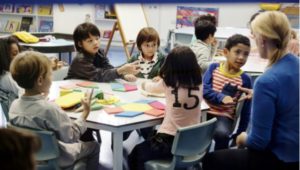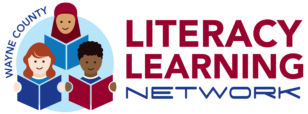
CONSIDERATION 1: Knowledge and Ownership
Principle: Building knowledge with stakeholders enhances the opportunity for ownership and sustainability of a robust professional learning system and ensuring ongoing support.
 It is important to remember that all schools in a district are part of a single system. When developing a coaching model, we want to ensure that the changes are made at the systemic level.
It is important to remember that all schools in a district are part of a single system. When developing a coaching model, we want to ensure that the changes are made at the systemic level.
Building knowledge in ways that include diverse stakeholders enhances the opportunity for real ownership of the work. Instructional, administrative, and central office staff will be more engaged in the process when given the opportunity to collaborate. This collaboration will ensure all parties have a say in the reasons for the work, what it will look like in practice, and the kinds of results the system hopes to achieve.
Essential Questions to Address:
- How might coaching fit the identified needs of our district?
- What decision-making protocols would assist us in determining which content area(s)/grade levels might benefit from coaching? How will data influence decision-making throughout the process?
- How will a shared understanding of this approach throughout the system benefit our organization?
- What shifts might be necessary to encourage shared responsibility, leadership, and development?
- How might coaching address issues of collaboration, culture, and collective capacity in our district?
- How will we ensure that this model is implemented to ensure sustainability over time?
- How will the district articulate how coaching fits into the spectrum of reform efforts?
